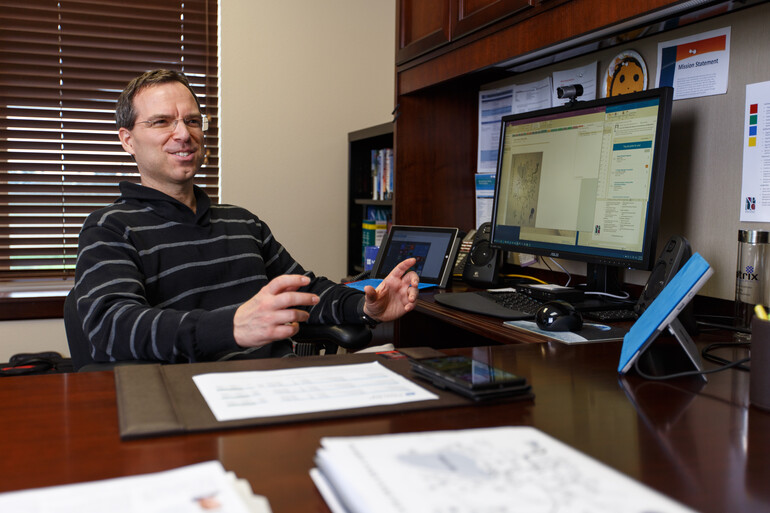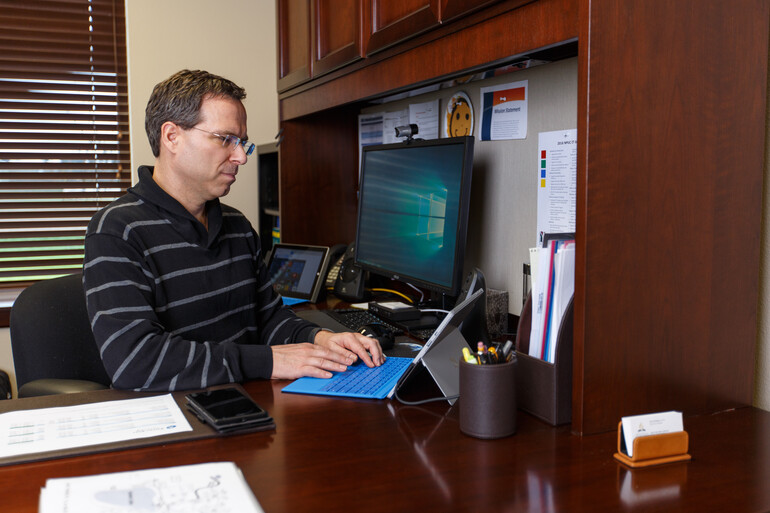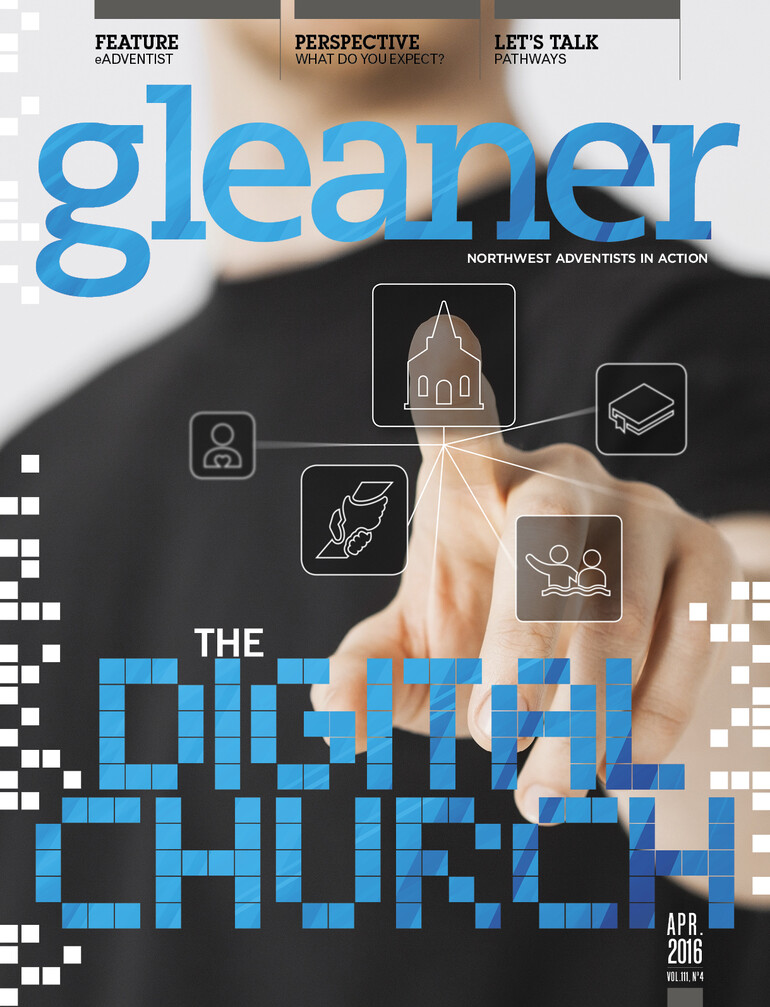Much of what happens in today’s world is embedded in the digital domain. Shopping, banking and even relationships are carried on through digital devices such as smartphones and tablets. Often our churches, used to more traditional methods, are slow to adopt the most current technologies on behalf of the Great Commission. Loren Bordeaux, North Pacific Union Conference information technology director, offers encouragement here to Northwest churches and members to become more intentional about new methods.
How important is digital technology to the mission of our church?
The future of our church rests on everyone: children, youth, collegians, laborers, professionals, seniors and the elderly. We cannot afford to leave any group out as all are important. However, each church must learn now how to communicate, engage and involve the younger generations. If we neglect this, we will not only fail in reaching younger demographics within our communities but also risk continuing to see two out three of our own youth walk away from the church because they feel disconnected.
Obviously technology cannot and should not replace personal time and relationships we build with each other, young and old. But ask 10 tweens and teens in your church what they use to communicate, and you’ll quickly discover some new ways to connect, methods our traditional channels are missing. Do the same for other age groups too, and you’ll get a quick reality check.
What are the basics that every church should consider in digital communication?
Each church should have an accurate and updated website or social media presence. That means helpful and current information, not content from months or years ago. Make no mistake. If your website is full of outdated information, it gives your members and any community member who is searching for you an undesirable message: “We are lazy, unprofessional and unconcerned about how we connect with our world.” If information on these sites are not current, it’s better to not have them, so be committed once you start. If you have a church website, it must be mobile-friendly.
If your church hasn’t started a video ministry, it’s time to begin. It costs less than you might think to live-stream your church services on the Internet. Video ministry is a great way to involve young people too, especially for those who don’t relish being upfront. They can help with nearly any aspect of the ministry, from camera operator on up.
Having a website/social presence and video ministries are almost yesterday’s news; if you don’t have a vibrant, up-to-date online presence, it’s beyond time to start.
Beyond the basics, what is one trend with which our churches should be up to speed?
We need to leverage wireless devices such as smartphones, tablets and other highly portable devices. According to a recent PEW survey, more than 60 percent of the U.S. population has a smartphone. Among young adults, 85 percent own a smartphone, and they use those mobile devices many times a day. We need to think mobile first, even before paper, with any project, initiative or communication. We need to change how we do things.
Some of our churches are beginning to use smartphone technology to promote and track their evangelistic efforts. They are able to follow attendance and demographics to nearly any event or service in real time. Having real-time information that also allows for deeper post-analysis would revolutionize decision-making.
Here’s something to consider: Can we take a page from big business and track our online visitors in ways that help direct them to a deeper study of the gospel? Could that also encourage them to connect further with Jesus and His followers? Why shouldn’t we use every digital tool possible to pinpoint and answer the felt needs of those who are seeking for truth?
For a variety of things or services at a potential price discount for your church visit http://purchasing.adventist.org for more details.
What are your recommendations to keep churches and members safe from online or computer security problems?
Without any special settings, your home computer is likely open to whatever the Internet offers — good and bad. I suggest setting your router/firewall to use OpenDNS. It helps filter adult content as well as other high-risk websites. You can learn more by visiting https://www.opendns.com/home-internet-security/.
If your church provides Wi-Fi for staff and visitors, make sure you also provide appropriate Internet filtering. If you are unable to afford filtering, then you shouldn’t be providing Internet service.
What about copyright issues for music/word/graphic projection in the sanctuary?
This is a very important issue, one that we should all take very seriously. We should never pontificate about obeying God’s law while illegally using copyrighted material. If you don’t know about CCLI (Christian Copyright Licensing International) get to know them well, pay for the type of licenses your church needs to cover your copyrighted material usage and follow their recommendations. Go to http://us.ccli.com to learn more.










